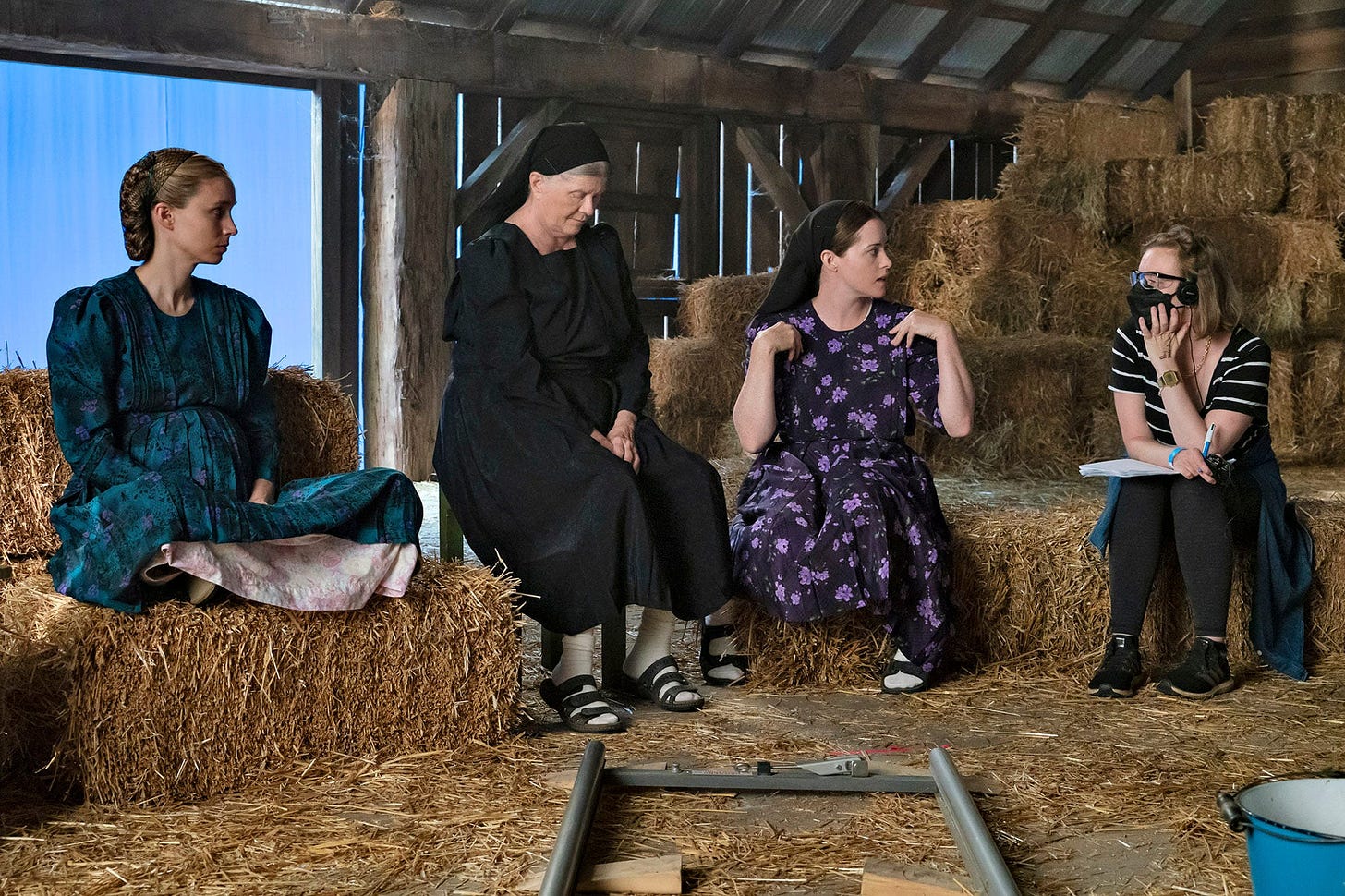The Best Note Writer-Director Sarah Polley Ever Received
During development of the Oscar-winning script for 'Women Talking', the filmmaker got a note that every screenwriter should take to heart.
I’m not an avid podcast listener, but my wife — who is — suggested I give a recent episode of Craig Mazin and John August’s SCRIPTNOTES a go. We had both been moved by writer-director Sarah Polley’s latest film WOMEN TALKING, an adaptation of Miriam Toews’s novel of the same name, and Polley was on to discuss the film, its development process and production, and much more. Polley’s interview is well worth a listen for many reasons if you’re a screenwriter or aspire to be, especially for a recollection she offers about a note she received early on while working on her screenplay.
To set the scene: Mazin and August are marveling at the fact that WOMEN TALKING more or less dives right into its story, which involves the women of a religious colony — who have recently discovered they’ve been drugged and raped for years — debating whether to stay and fight for change or up and leave. There is virtually no set-up to this and no time is spent establishing characters before the debate begins.
Except Polley reveals she did write thirty-five pages of exactly that in her first draft, what she describes as “endless backstory”.
This is where it gets interesting.
Polley finds herself on the phone with producers Dede Gardner and Frances McDormand after they had read the aforementioned first draft. Gardner, a no-bullshit producer, asks:
“The beginning of the film, the first twenty to forty pages, did you write these because you wanted to or because you felt you had to?”
Polley describes this as the “best script note” she’s ever received. It’s the moment where she realized, “This [film] gets to be what I want it to be, not what I feel I need to do.”
That’s because writing for studios and networks and producers and agents — and every other gatekeeper on your road to success — can and very often does involve writing not for yourself, but for how they will react to your writing.
Or, more precisely, how you think they will react to your writing.
It begins by self-censoring ourselves, obstructing our own instincts — whether good or bad — in order to court their approval, the potential for success, our dreams.
Instead of writing something true to our voice, true to who we are as storytellers, we write towards our perceived expectations of the market, trends, even what “rules” dictate makes a commercially viable screenplay.
“Did you write these because you wanted to or because you felt you had to?”
These are words every screenwriter and every storyteller out there aspiring to create great work should never forget. It’s not that you shouldn’t consider your audience, but if you’re chasing your audience rather than leading them, you can’t help but always be behind them until, eventually, you’re just…left behind.
You can find the screenplay for WOMEN TALKING here: “50 Great Screenplays by Women to Download and Study for Free”.
If this article added anything to your life, please consider buying me a coffee so I can keep this newsletter free for everyone.
PSALMS FOR THE END OF THE WORLD is out now from Headline Books, Hachette Australia, and more. You can order it here wherever you are in the world:






I love this film! Thank you so much for this inspiring message. I try to remind myself of this with every Campfire Story of Resistance & Resilience I write! It is probably why each one I have written, so far, has taken and required and demanded so much out of me, and more, each time. Even though I initially suffered the delusion that researching, drafting, composing, telling, and editing them, would be easy, and would get easier, along the way. They haven’t—but in the end, after hours and hours of obsessive, feverish writing, rewriting, and editing my work—I have in the end been happy enough in terms of feeling I’ve achieved my vision, and been true enough to the increasingly difficult and challenging subject matter, and the legacy of those I’m writing about. I certainly hope that is the way Sarah Polley felt about her film, a deep and powerful and touching film about deeply disturbing, and important, human and female experiences that resonate across communities, countries, and lifetimes.
Yes 🙌🏽 Thank you. Note to self trust audience to pick up a story (if you’ve made us care). A fellow speculative writer friend loves to drop kick her readers directly into the middle of the fray, which led our Clarion West classmates to ask, “Are we naked mole rats or what?”
Sarah Polley rules. “Women Talking” is one of the best titles - and films - ever made to show us what emotional intelligence, and democracy, looks like.